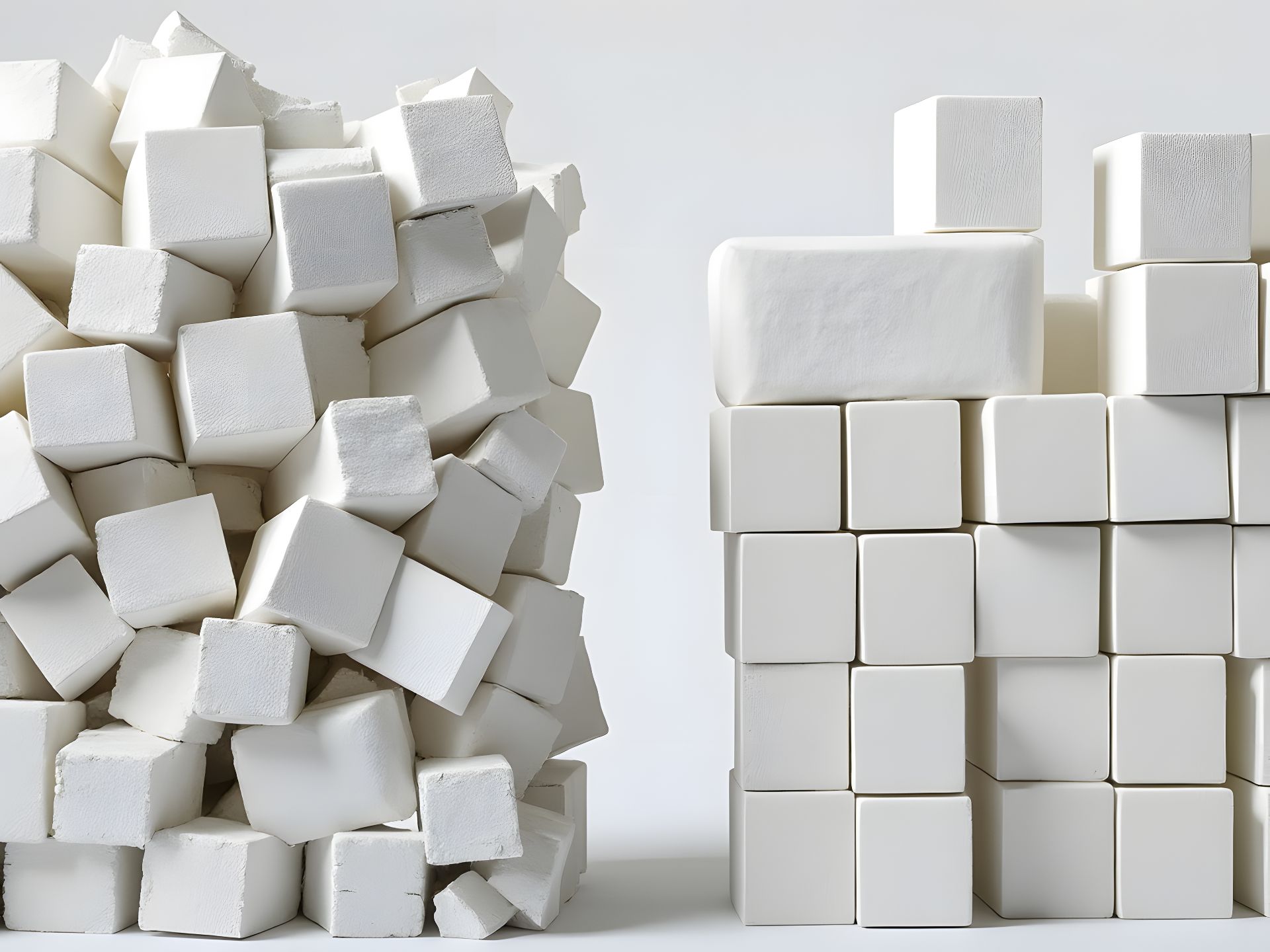A Professional’s Guide to EPS Recycling Machines
An EPS recycling machine is a specialized piece of equipment designed to solve one of the biggest challenges in plastic waste management: the immense volume of Expanded Polystyrene (EPS), commonly known by the trademark Styrofoam. Because EPS is composed of up to 98% air, it occupies a disproportionate amount of space in warehouses, transport vehicles, and landfills. This makes disposal expensive and inefficient. These machines transform bulky, lightweight foam into dense, manageable blocks, turning a costly waste stream into a valuable, sellable commodity.
This comprehensive guide explains the different types of EPS recycling technology, their mechanisms, and the key factors your business should consider when selecting the right solution.
The Core Problem with EPS Waste
Expanded Polystyrene is a popular material for packaging, insulation, and food containers due to its light weight and excellent cushioning properties. However, these same properties make it an environmental and logistical headache. Discarded EPS is slow to biodegrade and its bulkiness means that even a small amount by weight can fill up a dumpster quickly. This leads to high transportation and landfill fees. An EPS recycling machine directly addresses this by tackling the primary issue: volume.
Two Main Technologies for EPS Volume Reduction
EPS recycling equipment primarily falls into two categories based on the method used to reduce volume: cold compaction and thermal densification. Understanding the difference is crucial to choosing the right machine for your operational needs.
Cold Compaction (Screw-Drive Compactors)
A cold compactor uses immense physical pressure to process the foam. Loose EPS is fed into a hopper, where a large screw auger breaks it up and forces it through a compaction chamber. The friction and pressure squeeze the air out, forming a continuous, dense log or block.
Key Advantages:
- Lower Energy Consumption: Since no heat is applied, the operational costs are significantly lower compared to thermal densifiers.
- No Fumes or Odors: The process is purely mechanical, eliminating the need for special ventilation systems to handle plastic fumes.
- Material Integrity: The EPS is not melted, which can be preferable for certain recycling end markets that want to control the melting process themselves.
- High Throughput: These machines can often process large volumes of foam quickly.
Considerations:
- The volume reduction ratio is typically around 50:1, which is substantial but less than thermal densification.
Thermal Densification (Heat-Melt Densifiers)
A thermal densifier uses heat to melt the EPS foam. The material is fed into a chamber with heating elements that liquefy the foam. A screw then extrudes the molten plastic, which cools into a very dense, solid ingot. This process is akin to melting down the foam into a solid plastic brick.
Key Advantages:
- Maximum Volume Reduction: This method achieves the highest possible compression, with ratios up to 90:1. This is ideal for minimizing shipping costs over long distances.
- Sterile Output: The heat sterilizes the material, which is particularly useful for recycling used food containers or fish boxes.
- Dense, Stackable Ingots: The resulting ingots are extremely dense, easy to stack on pallets, and highly sought after by recyclers.
Considerations:
- Higher energy consumption due to the heating elements.
- Requires proper ventilation to manage fumes produced during the melting process.
Transform Your EPS Waste into a Resource
Our line of high-performance EPS Recycling Machines offers both cold compaction and thermal densification solutions. Find the perfect fit to reduce your costs and create a new revenue stream.
View Machine SpecificationsWhat Happens to the Recycled EPS Blocks?
The dense blocks or ingots produced by an EPS recycling machine are not waste; they are a valuable raw material. These blocks are sold to manufacturers who grind them into pellets. These pellets are then used in a process called injection molding to create a wide array of new, durable plastic products, including:
- Picture frames and architectural moldings
- Park benches and outdoor decking
- Coat hangers and office supplies
- Hard plastic casings for electronics
This creates a closed-loop system where waste is repurposed into new goods, aligning with the principles of a circular economy. The market for these recycled blocks is well-established, providing a reliable source of revenue for businesses that recycle their EPS.
How to Choose the Right EPS Recycling Machine for Your Business
Selecting the ideal machine depends on a careful evaluation of your specific circumstances. Ask these questions to guide your decision:
- What is your monthly volume of EPS waste?
A small retail store may only need a low-capacity compactor, while a large distribution center will require a high-throughput industrial machine. Calculate your waste in kilograms or pounds per month. - What is the condition of your EPS?
Is it clean packaging foam, or is it contaminated with food residue (e.g., fish boxes)? For contaminated material, a thermal densifier’s heat can provide a sterilizing benefit. - What are your primary goals?
If your main goal is simply to reduce landfill and transport costs, a cold compactor is a very cost-effective solution. If you aim to maximize the sale value of your recycled material for long-distance shipping, a thermal densifier’s 90:1 ratio is superior. - What are your facility’s constraints?
Consider your available floor space, power supply, and ventilation capabilities. Thermal densifiers require a well-ventilated area. - What is your budget and expected ROI?
Calculate the return on investment by comparing the machine’s cost against your current monthly spending on EPS disposal (hauling fees + landfill costs) plus the potential monthly revenue from selling the compacted blocks.
In summary, an EPS recycling machine is a powerful tool for any business that generates significant amounts of foam waste. By compacting or densifying this material, you can dramatically cut operational costs, create a new revenue stream, and make a positive environmental impact. As confirmed by industry data from organizations like the Plastics Industry Association, creating high-quality recycled feedstock is essential for sustainable manufacturing. To find the perfect equipment for your needs, explore the range of solutions available at Energycle Machine.


